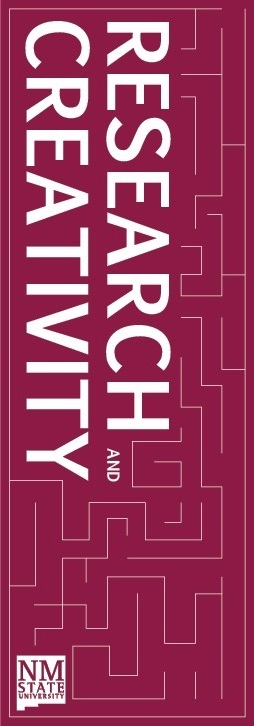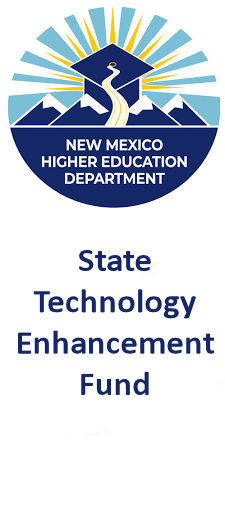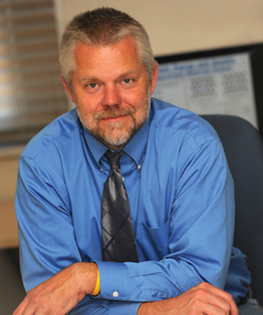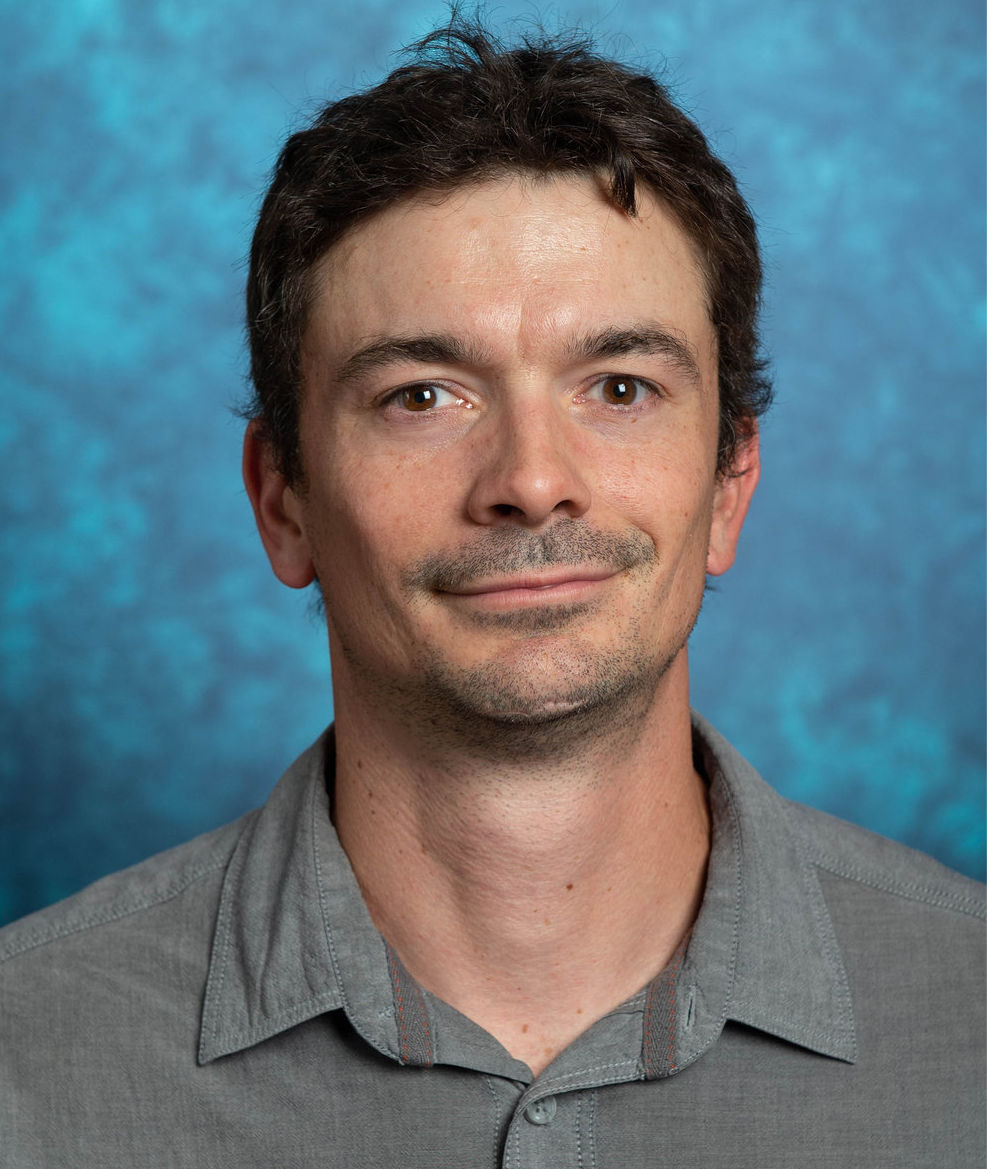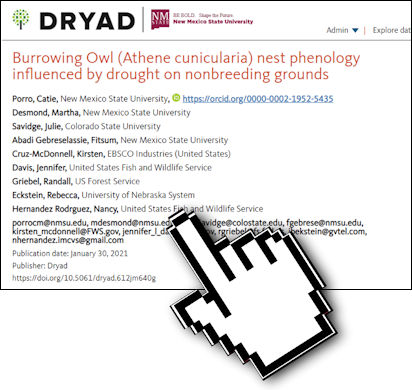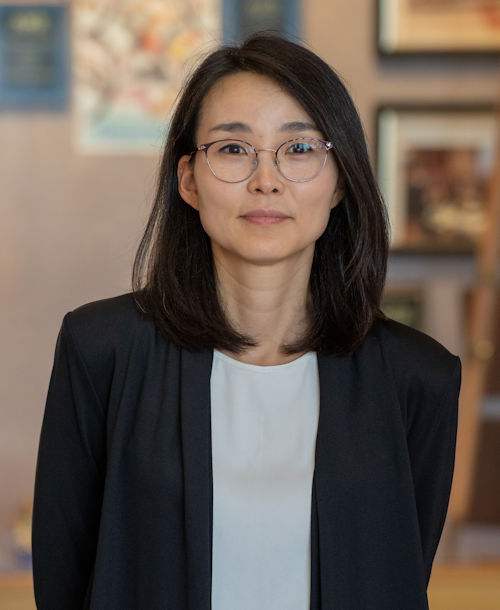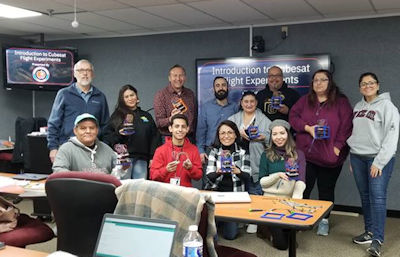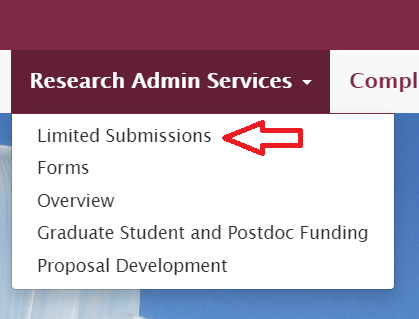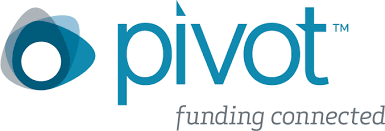 |
|
Research and Creativity Week 2023: Show Up and be Seen
Dr. Luis Cifuentes, Vice President for Research, Creativity, and Strategic Initiatives “There is nothing more vulnerable than creativity. . . It's not about winning, it's not about losing, it's about showing up and being seen.” Brené Brown The fourth NMSU Research and Creativity Week (#NMSURCW2023) will take place two weeks from today, February 20st - 25th. Organized by the University Research Council with support of Graduate Student Council, Graduate School, Honors College, Music Department, and others, this year promises rich, diverse, comprehensive programing to include:
Our research and creativity enterprise is a community and, as such, we share common values, creation and dissemination of knowledge and art. To that end, an audience is a necessary, but not sufficient aspect of dissemination. Who is in the audience matters. |
|
Get to Know the State Technology Enhancement Fund
By Dr. Tanner Schaub, Director, Reseach Cores ProgramRecently, NMSU faculty and administrators may have heard about the Technology Enhancement Fund (TEF), a state-level matching funds program for cost-share and equipment needs at New Mexico’s research institutions. Here, we provide essential information on TEF and steps taken by the RCSI office to position NMSU for this opportunity.
Status: The RCSI office is working with the Associate Deans of Research to identify NMSU projects with an appropriate scope and available matching funds. Over $10 million in NMSU TEF requests (backed by over $25 million in non-state G&C funds) are currently under consideration. Faculty interested in applying for the TEF should consult their Associate Dean of Research for initial approval and contact RCSI for application information. The NMSU Council of Associate Deans for Research (CADRe) will prioritize the list of TEF requests and submit it to Chancellor Arvizu. The Chancellor-approved list will be forwarded to the TEF review committee in February. We thank Senator Soules, the NMSU government relations office, and particularly Clayton Abbey, for their hard work on behalf of NMSU research. We thank participating faculty for their efforts and patience as we await further progress from Santa Fe. For questions, contact me at tschaub@nmsu.edu or (575) 646-5156. |
|
Recognizing Large Proposal Submitters (January 2023)
By Dr. Hamid Mansouri Rad, Senior Proposal Development Specialist, RASCongratulations to Drs. Boris Kiefer and Erik Yukl for each submitting a proposal in excess of a million dollars in value in January. Professor of physics Dr. Boris Kiefer submitted a $6 million proposal to NSF EPSCoR program. The proposal aims to develop sustainable technologies for combatting climate change, especially in often disadvantaged rural communities. However, as Dr. Kiefer explains community resilience to climate change has been hampered by “an imbalance in climate critical technology readiness, its accessibility and community responsiveness,” thus the need for a “community centric climate action program to successfully combat climate change and its consequences, in our state, our nation, and around the world.” To address this need, Dr. Kiefer’s proposal aims to leverage capabilities in three EPSCoR jurisdictions--New Mexico, Alabama, and Iowa, to develop a transformative climate education and research infrastructure. This effort involves partnerships between universities, communities, national laboratories, and industry in these three regions and is planning to expand minority and early-career project participation in STEM research and economic development. For more information, please contact Dr. Kiefer at bkiefer@nmsu.edu. |
Dr. Boris Kiefer, NMSU |
|
Dr. Erik Yukl, assistant professor of chemistry and biochemistry, submitted a $1.5 million proposal to the National Institutes of Health. Dr. Yukl’s research includes studying how bacteria acquire transition metals such as iron, copper, manganese, and zinc from the environment to perform essential biological functions such as respiration, photosynthesis, and DNA synthesis. Dr. Yukl’s research has important applications in human health, specifically in developing antibiotics against resistant bacteria. This proposal aims at extending Dr. Yukl’s research for five years which will have impact on treating bacterial infections. For more information please contact Dr. Yukl at etyukl@nmsu.edu.
|
Dr. Erik Yukl, NMSU |
Dryad, An Easy Way to Store and Share Your Research Data
By Ms. Susan E. Beck, Professor and Scholarly Communications/OER LibrarianNMSU researchers in search of a repository for their data need look no further than Dryad. Dryad is a non-profit data repository offering both institutional members and individual researchers a secure location for research data storage. NMSU is now a Dryad member and NMSU researchers can deposit their data in Dryad. This is especially important for researchers with data sets that do not fit in any of the federal or subject repositories (see lists here). Dryad offers several benefits. The non-profit works in partnership with major journal publishers, making manuscript submission easy. Dryad is fully compliant with funders' data access and sharing mandates. It provides metrics to track how individual data is viewed, shared, cited, and downloaded. It has an option to upload code, scripts, and software. These can be automatically sent to Zenodo. Dryad reviews all data submitted for both data and metadata integrity. Finally, Dryad preserves researchers’ data in a Core Trust Seal-Certified repository. For more information about uploading your data to Dryad, see the Data Management & Planning Guide at https://nmsu.libguides.com/dmps or contact me at susabeck@nmsu.edu or Dr. Tanner Schaub at tschaub@nmsu.edu.
|
|
Faculty Highlight: Integration of Research and Education in Civil Engineering
By Dr. Hamid Mansouri Rad, Senior Proposal Development Specialist, RASWe value the scholarly activities of all NMSU faculty and staff, in particular those who contribute to the research mission of the university. Such contributions are regularly recognized when faculty submit large proposals or garner external awards; however, monitory value is not the only measure of research excellence. NMSU faculty regularly develop innovative approaches that often lead to strengthening our research capabilities, or contribute to research scholarships, efforts that we wish to highlight in the Research Digest.
For more information please contact Dr. Choe at dchoe@nmsu.edu . |
Dr. Doeun Choe, NMSU |
Pathway to Space Teachers Learn How to Use CubeSats
By Dr. Paulo Oemig, Director, New Mexico Space Grant ConsortiumOn January 20 and 21, a cohort of New Mexico teachers participating in the Pathway to Space pilot project were trained to program sensors and build CubeSats. The Pathway to Space is a collaboration between 21st Century Academic Enrichment Programs (21stCAEP) and the NM Space Grant Consortium. Teachers are implementing space-related themes with their students and learning about space entrepreneurship, careers in the space industry, studying the properties of simulated regolith to grow plants, and rocketry. Teachers practiced soldering, learned programming Arduino microcontrollers, set up sensors such as accelerometers, photosensors, real time clocks, and temperature/pressure sensors and integrated them into a CubeSat form-factor. This semester teachers are working with middle and high school students teams to propose ideas for experiments. Students’ payloads will be flown on a drone to test their experiments and collect baseline data. For more information please send email to poemig@nmsu.edu. |
|
Limited Submission Funding OpportunitiesBy Dr. Hamid Mansouri Rad, Senior Proposal Development Specialist, RASResearch Administration Services maintains a list of limited submission funding opportunities for NMSU research community. The list is accessible through a link on the Research website, through the Research Administration tab. NMSU users can also access the list directly on SharePoint. We encourage NMSU researchers to periodically visit the site and if they are interested in any of the opportunities to please inform us by sending email to ras@nmsu.edu. |
|
Pivot Funding Opportunity DatabaseBy Dr. Hamid Mansouri Rad, Senior Proposal Development Specialist, RASThis is a reminder that in order to assist NMSU faculty and staff in locating external funding opportunities, the RCSI has purchased a subscription to ProQuest’s Pivot available at https://pivot.proquest.com/session/login. Choose New Mexico State University from the Institution drop down menu. You will be prompted to log in using your NMSU username and password. Follow the process for NMSU's 2-Factor Authentication (2FA). To request a one-on-one or group Pivot training, send email to hamid@nmsu.edu. |
|
|
Graduate School |
|
|
No significant news. For information about NMSU Graduate School visit: https://gradschool.nmsu.edu/. |
|
Questions and comments regarding NMSU’s Research Digest should be directed to Hamid Mansouri Rad, Ph.D. at hamid@nmsu.edu, (575) 646-6429. |
|
